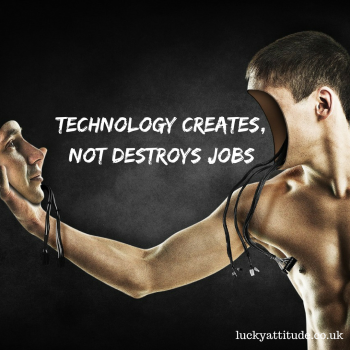How To Use AI In Digital Marketing: Beyond The Basics

Artificial Intelligence (AI) is transforming digital marketing by enabling marketers to do their jobs faster and better, mainly by automating tasks.
AI isn’t taking over marketing jobs, it just makes it easier for marketers to do their job.
You are probably aware of popular AI uses in marketing such as data collection and analysis, content & video creation, and chatbots.
The internet is full of advice on these well-known uses.
In this article, we’ll dive into lesser-known AI applications that can provide a competitive edge.
Advanced predictive analytics for futureproof strategies
Predictive analytics is not just about forecasting future trends. It’s also about identifying potential customer behaviour patterns. AI algorithms can analyse vast amounts of data to predict which products are likely to appeal to specific customer segments, helping marketers tailor their strategies more effectively.
When advanced predictive analytics predicts the likelihood of a customer making a purchase, it uses data such as browsing history, past purchases, and behaviour patterns to assess how likely a customer is to buy a product or service. By analysing this data, businesses can identify customers who are close to making a decision. They can then target these potential buyers with personalised offers, discounts, or reminders, increasing the chances of conversion and enhancing the overall customer experience. This targeted approach is more efficient than generic marketing strategies. Read more about advanced analytics tools here.
Voice search optimisation
With the rise of voice assistants like Siri, Alexa, and Google Assistant, optimising for voice search is becoming increasingly important.
AI can help businesses understand and predict the natural language queries that users might use, allowing them to optimise their content for voice search.
This includes focusing on long-tail keywords and natural language phrases that are more likely to be spoken than typed.
Consider incorporating long-tail keywords and phrases which reflect how people speak.
According to Click Consult it’s brand awareness that leads to increased website traffic. By delivering concise, relevant answers to voice queries, you can establish your brand as a credible expert in your field, which helps you build trust, links, and authority.
Dynamic pricing for better profits
AI can be used to implement dynamic pricing strategies, where prices are adjusted in real-time based on demand, competition, and customer behaviour.
Dynamic pricing, mostly used in the travel and hospitality industries, involves adjusting prices in real-time based on factors like demand, competition, seasonality, and customer behaviour. For example, airlines and hotels may increase prices during peak travel seasons or for last-minute bookings, and lower them during off-peak times to fill seats and rooms.
In e-commerce, dynamic pricing can similarly adjust prices based on factors such as product demand, inventory levels, competitor pricing, and customer browsing behaviour.
For instance, an e-commerce platform might raise the price of a popular item when demand spikes or offer discounts on items that aren’t selling well to stimulate sales.
This approach helps businesses maximise profits by capturing consumer surplus—charging higher prices when customers are willing to pay more and offering discounts to encourage purchases when demand is lower.
Hyper-personalised content and ads for better conversions
While Millennials appreciate personalised marketing, Gen Z are much more concerned about privacy.
AI can analyse user behaviour and preferences to recommend personalised content, whether it’s blog posts, videos, or products. This not only enhances user experience but also increases engagement and conversion rates.
AI can create hyper-personalised ads by analysing individual user data, including browsing history, past purchases, and even social media activity. This allows businesses to deliver ads that are not only relevant but also highly personalised to individual users, significantly improving click-through rates and conversion rates.
AI can optimise email marketing campaigns by analysing customer data to determine the best times to send emails, the most effective subject lines, and the types of content that generate the highest engagement. This level of automation helps ensure that emails are highly targeted and personalised, increasing the chances of conversion.
Augmented reality (AR) and virtual reality (VR) integration for increased sales
AI is increasingly being used to integrate AR and VR into marketing strategies. For example, beauty brands use AR to allow customers to “try on” makeup virtually. Similarly, furniture companies use VR to help customers visualise how furniture would look in their homes. This not only enhances the shopping experience but also reduces the likelihood of returns.
Advanced sentiment analysis for better brand reputation management
Beyond basic sentiment analysis, AI can delve deeper into understanding customer emotions and attitudes. This can be especially useful for brand reputation management, as it allows companies to quickly identify and respond to negative feedback or trending issues. Advanced sentiment analysis can also help in crafting more empathetic and engaging marketing messages.
For example, airlines use sentiment analysis to monitor customer feedback on social media and review platforms. By identifying negative comments, they can quickly address service issues, like delays or poor customer service, to improve satisfaction.
Tech firms monitor sentiment around product launches to understand user satisfaction and identify any emerging issues. This allows them to address bugs or concerns more rapidly, maintaining a positive brand image.
AI tools used in digital marketing
AI tools like OptiMonk AI, Jasper, and ChatGPT Plus are highlighted for tasks such as smart A/B testing, content writing, and optimisation of marketing strategies.
Tools like Salesforce Einstein for customer insights and forecasting.
Programmatic advertising platforms like Google Ads, Meta Ads Manager, and Amazon Advertising all use automated ad placement and targeting.
Marketo is an AI-driven marketing automation for lead management and campaign personalisation.
HubSpot and Salesforce for inbound marketing, sales, and CRM with AI-powered insights.


